Heart-healthy foods for Cardiovascular health: Your heart works tirelessly every second of the day, so it is extremely important to keep it in the best condition. A balanced diet rich in nutritious foods can significantly reduce the risk of heart disease. In this article, we will discuss 5 heart-healthy foods that can improve your heart health, along with scientific evidence and expert recommendations.
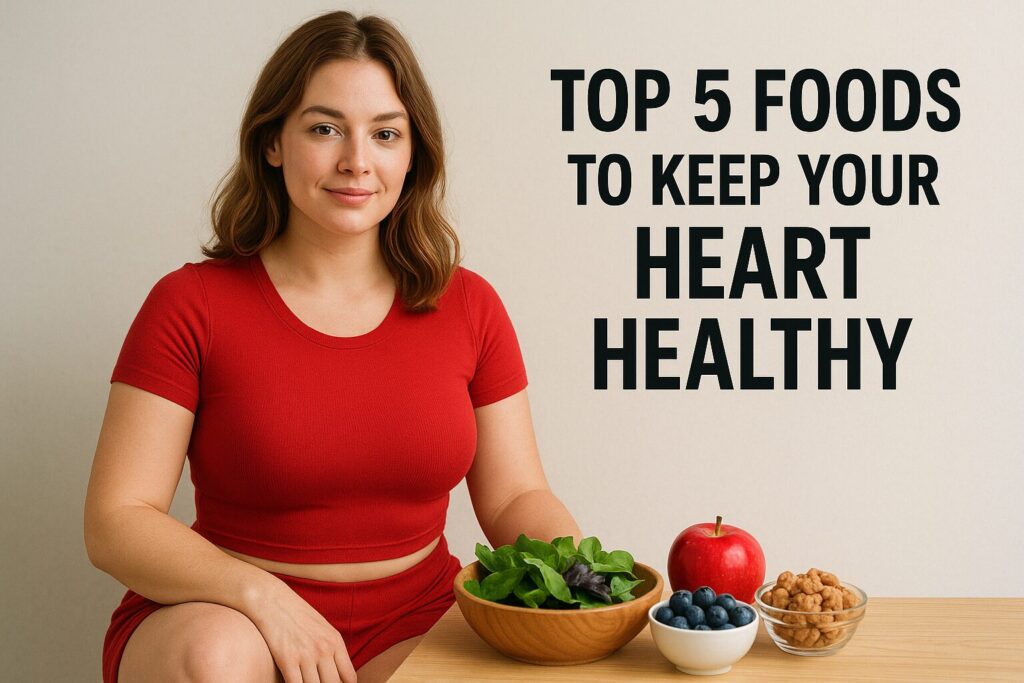
1. Berries: Nature’s Antioxidant Powerhouses
Best Heart-Healthy Foods For Cardiovascular Health
Berries like strawberries, blueberries, and raspberries are loaded with antioxidants such as anthocyanins, which protect the heart from oxidative stress.
- Key Nutrients: Vitamin C, fiber, and potassium.
- Scientific perspective: A study published in Circulation showed that women who ate blueberries or strawberries three or more times per week had a 32% lower risk of heart attack.
- Quick Tip: Add fresh berries to your morning yogurt or oatmeal for a heart-healthy breakfast.
Are berries beneficial for heart health and how do they help?
Yes, berries are good for heart health. They are rich in antioxidants, vitamins and fiber, which help reduce inflammation and oxidative stress, both of which are linked to heart disease. Berries, especially blueberries, strawberries, raspberries and blackberries, are rich in compounds such as anthocyanins and flavonoids, which may lower blood pressure and improve blood vessel function.
Read Also: Heart Attack Symptoms in Women
2. The Omega 3 (Fatty Fish)
Heart-Healthy Foods For Cardiovascular Health
Fatty fish such as salmon, mackerel, and sardines are rich in omega-3 fatty acids, known to reduce triglycerides and inflammation.
- Key Nutrients: Omega-3, Vitamin D, and selenium.
- Doctor’s Note: “Omega-3s are the cornerstone of a heart-healthy diet because they lower blood pressure and improve artery health,” says cardiologist Dr. Andrew Freeman.
- Quick Tip: Aim for two servings of fatty fish per week as recommended by the American Heart Association.
How do fatty fish and omega-3 fatty acids help reduce the risk of heart disease?
Fatty fish rich in omega-3, fatty acids provide important benefits for heart health. These acids, especially EPA and DHA, can reduce triglyceride levels, the risk of arrhythmias, and the buildup of plaque in the arteries. Regular consumption of oily fish such as salmon, mackerel, and sardines helps reduce the risk of heart disease, including sudden cardiac death.
3. Leafy Greens: The Nutritional Powerhouses
Heart-Healthy Foods For Cardiovascular Health
Spinach, kale, and Swiss chard are low in calories but high in vitamins, minerals, and nitrates, which improve arterial function and reduce blood pressure.
- Key Nutrients: Vitamin K, magnesium, and nitrates.
- Study reference: A study published in the Nutrition Journal found that a diet rich in green leafy vegetables can lower systolic blood pressure by an average of 3.7 mmHg.
- Quick Tip: Blend spinach into smoothies or use kale in salads for a nutrient-packed meal.
How do green leafy vegetables support heart health and improve cardiovascular function?
Yes, green leafy vegetables are extremely beneficial for heart health. They are rich in vitamins, minerals and antioxidants, such as vitamin K and nitrates, which can help improve blood pressure, reduce arterial stiffness and boost overall heart function.
4. Nuts and Seeds: Heart-Friendly Fats
Heart-Healthy Foods For Cardiovascular Health
Almonds, walnuts, and flaxseeds are rich in healthy fats, fiber, and plant sterols, which help lower bad cholesterol (LDL).
- Key Nutrients: Alpha-linolenic acid (ALA), fiber, and magnesium.
- Doctor’s Note: Dr. Dean Ornish, a pioneer in lifestyle medicine, highlights that “nuts are a great snack option to improve lipid profiles and heart health.”
- Quick Tip: Sprinkle flaxseeds on your cereal or snack on a handful of walnuts for a mid-day boost.
How do nuts and seeds benefit heart health and help reduce the risk of heart disease?
Nuts and seeds are great for heart health because they are rich in healthy fats, fiber, and other beneficial compounds. Including a variety of nuts and seeds in your diet can help lower cholesterol and inflammation and may also reduce the risk of heart disease.
5. Whole Grains: The Heart’s Best Friend
Heart-Healthy Foods For Cardiovascular Health
Oats, quinoa, and whole wheat are excellent sources of soluble fiber, which helps reduce LDL cholesterol levels and improve digestion.
- Key Nutrients: Soluble fiber, B vitamins, and iron.
- Study Reference: Research from The Lancet confirms that individuals consuming whole grains regularly have a 20% lower risk of heart disease.
- Quick Tip: Switch from white rice to quinoa or brown rice for a heart-friendly alternative.
How Do Whole Grains Help Reduce The Risk Of Heart Disease?
Whole grains are beneficial for heart health because they are good sources of fiber and other nutrients that help control cholesterol levels, blood pressure, and weight—all important factors in preventing heart disease. Adding whole grains to your diet can reduce your risk of heart disease by up to 30%.
Why These Foods Matter
(Heart-Healthy Foods For Cardiovascular Health)
Each of these foods contributes uniquely to heart health by targeting risk factors like high blood pressure, cholesterol, and inflammation. Incorporating these foods into your diet can lead to long-term cardiovascular benefits and improved overall wellness.
Expert-Recommended Heart-Healthy Diet Tips
- Balance Is Key: Combine these foods with regular exercise and hydration.
- Portion Control: Excessive intake can negate benefits.
- Consult a Doctor: If you have any eating or drinking problems, consult a nutritionist.
Action
Your heart deserves the best care. Start incorporating these superfoods into your daily diet to enjoy a healthier, longer life. Share this guide with loved ones and inspire them to make heart-healthy choices today.
Suggestions:
- Top Nutrients by Food Type: Visualize the nutrients in berries, fish, greens, nuts, and grains.
- Calorie vs. Nutrient Comparison: Highlight the low-calorie, high-nutrient benefits of these foods.
- Meal Ideas: Showcase quick meal prep ideas featuring these 5 foods.
Please Note:
We try to provide complete information from our side, but we do not make any kind of claim. Please follow any exercise or supplement only after consulting your health doctor or exercise coach.
Sometimes we also use of AI to cross-check our information, but the information given by AI is checked and corrected by the Fit Hut team before writing it on fithut.in and before delivering it to you.

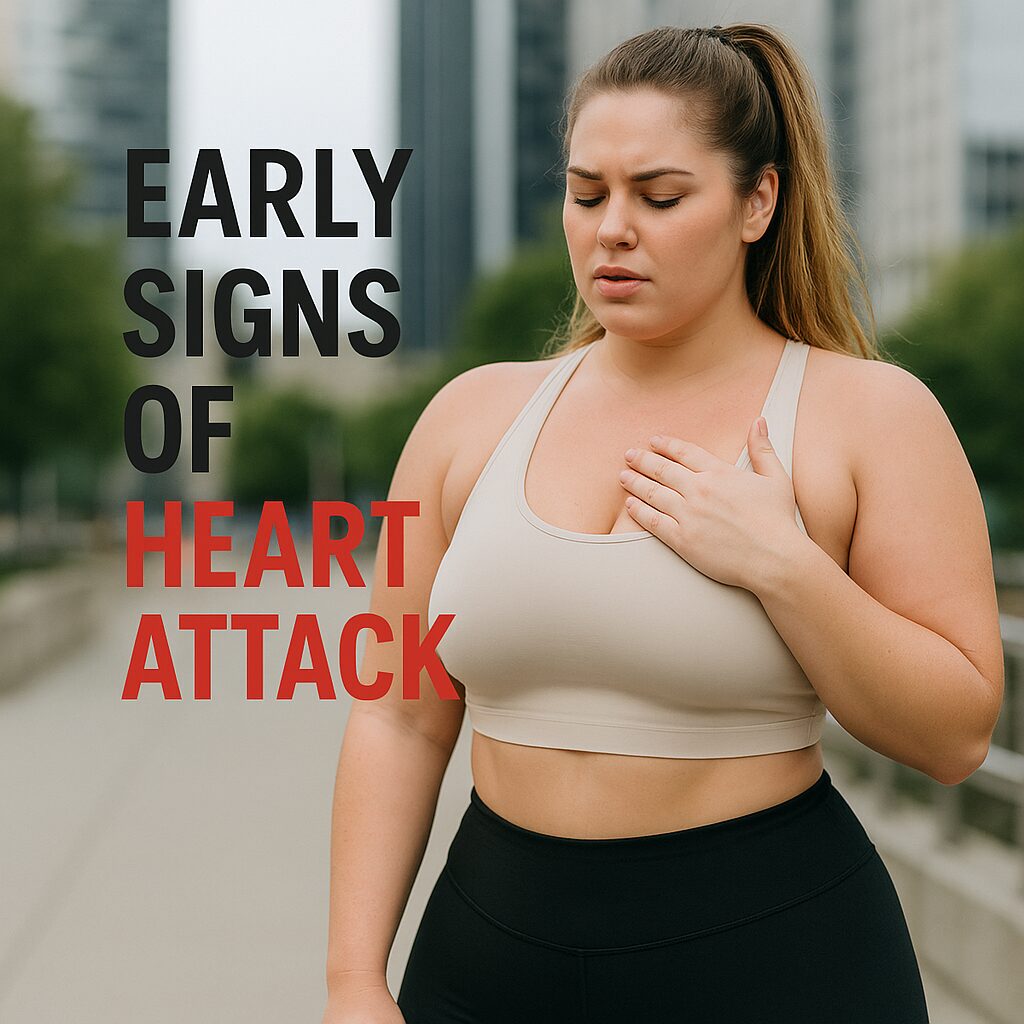
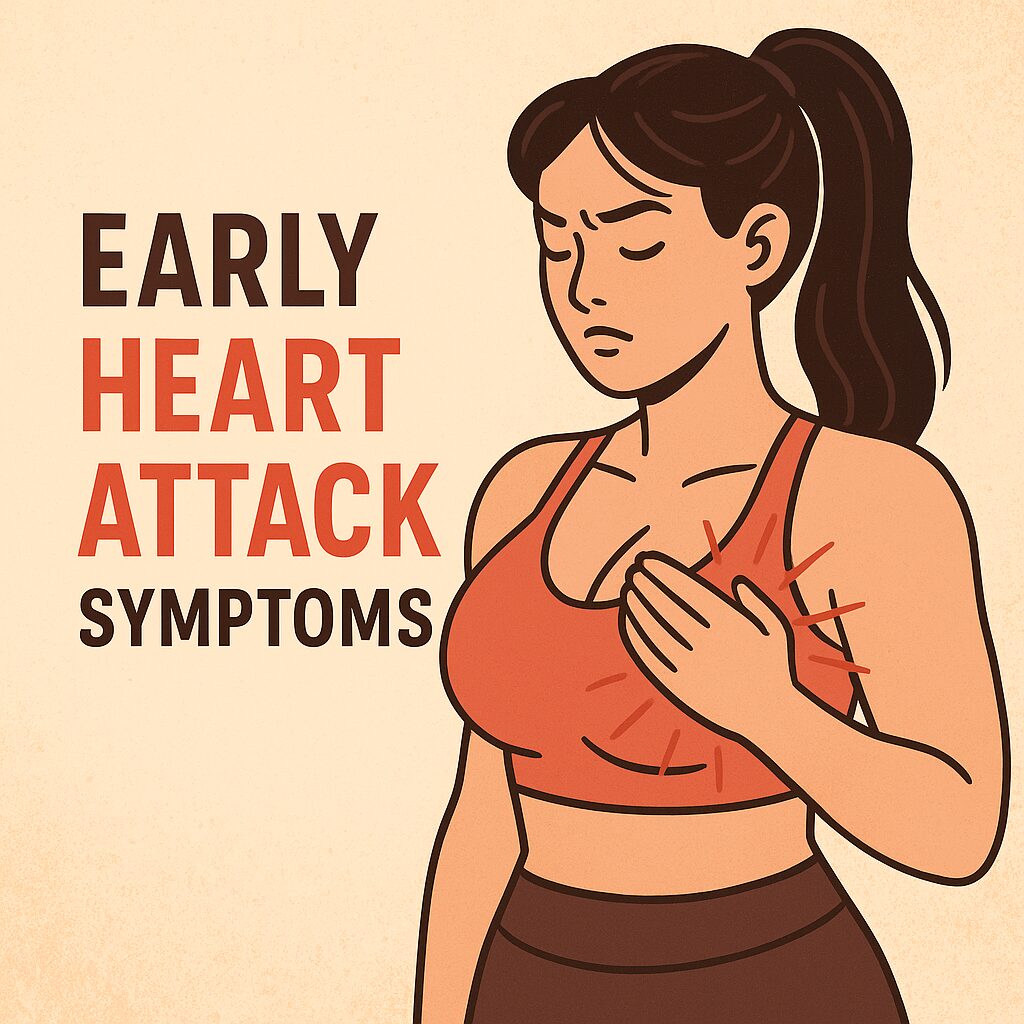
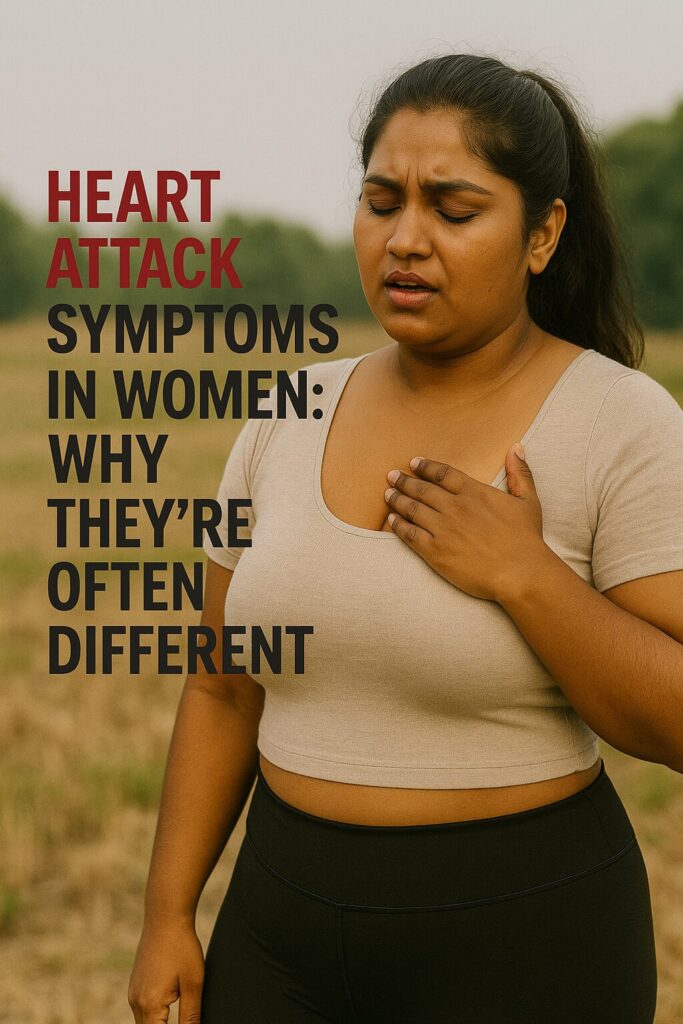

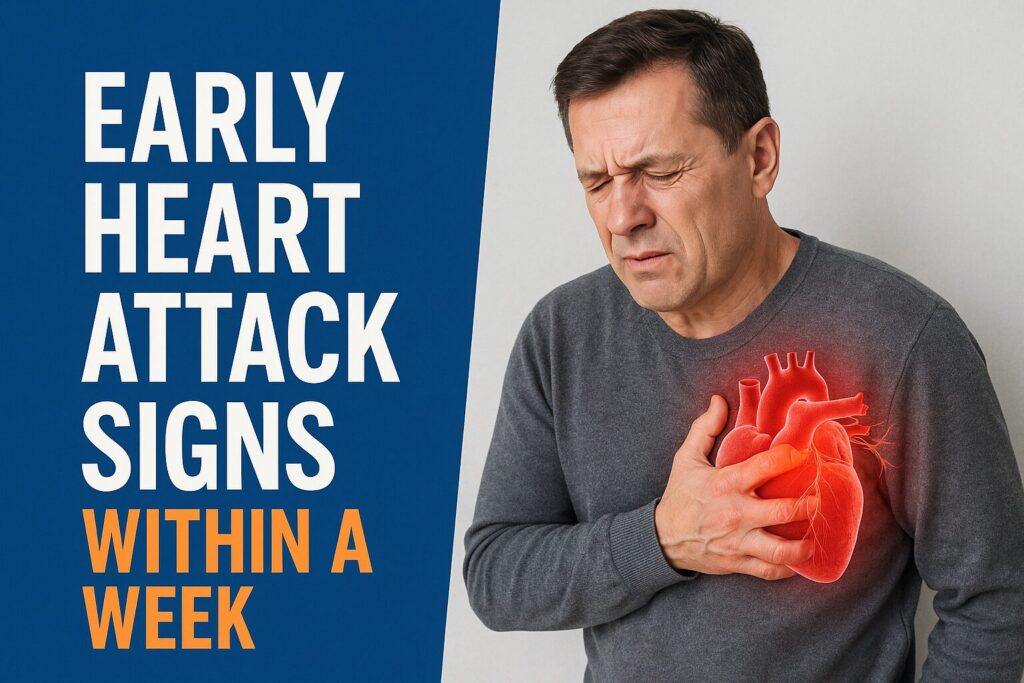
Pingback: Doctor Studies And Insight About Heart Attack Symptoms in Women - Fit Hut